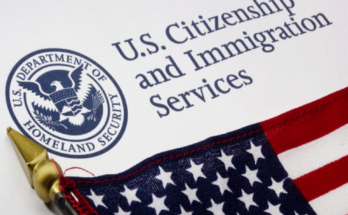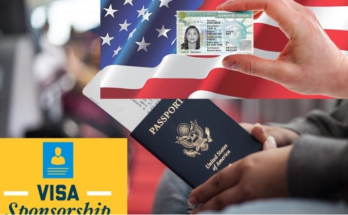If you have chosen to study in the US, then this USA F1 Visa Appointment Guide and F1 Visa Interview Guidelines is for you! Once you file your application and it’s accepted, your visa interview will be scheduled with the United States consulate or embassy in your country.Given this interview is one of the most important ones you’ll give in your life, it’s better to be well prepared in advance for the questions that might come your way. Let’s understand a little about F-1 student visa first:
F1 USA Student Visa Appointment Guide
- Get to the embassy 1 hour before your appointment, If you can arrive earlier, good.
- Hold like 5k cash, just in case.
- Follow the document checklist below and do NOT patronize the guys at the embassy who will tell you to print or photocopy something, take another passport etc.
- Dress comfortably and eat something light because you will be doing a lot of standing.
- Certain things are not allowed into the embassy: smart watches, airpods, phones etc. It is best to make arrangements to keep all your belongings and go in with just your clear folder.
ALSO READ: American University of Beirut Online Graduate Scholarship 2025
F1 Visa Application Documents Checklists
- A valid passport.
- The Non-immigrant Visa Application, Form DS-160; (Only the Barcode page).
- The application fee payment receipt.
- Appointment confirmation.
- A passport photo (“5cm by 5cm” or “2 inches by 2 inches”).
- Form 1-20 SIGNED .
- SEVIS payment receipt.
- Receipts – personal documents needed to prove whatever you say: financial statements, test scores, marriage certificate, funding offer, letter from employer etc.
USA F1 Student Visa Interview Guidelines
Once you’ve submitted all the above documents and paid both fees, you’ll then be able to schedule your visa interview. For you to be successful in your interview, make sure that you:
- Prepare your answers prior to the interview day. While you do this, remember to not to cram your answers. If you do this, your statements will sound unnatural and will be perceived as contrived.
An example is “…Furthermore, this course will equip me with the scientific…Moreover…” Your prepared answers should only give you AN IDEA, not the exact thing you are going to say. - Speak clearly, articulate your words properly and maintain eye contact with the VO.
- Arrange your documents in a way that you know where everything is.
- Do not talk to anybody or make friends at the embassy, there are different characters in that place, and they can bring down your confidence.
- Do not profile a VO, this can give you cold feet. They say correlation is not causation, this means if the VO denies 3 people before you, it might not necessarily mean that the VO is wicked, it can be that the VO just managed to interview 3 people that did not do the right thing in a row.
- Do not answer a question you were not asked or offer a document that wasn’t requested.
- Have a positive mindset and know that studying in America is not a do-or-die affair.
- Memorize your DS-160, and do not contradict any information in it during your interview.
F1 Visa Interview Process
As part of the USA F1 Visa Appointment Guide, when you apply for F-1 student visa which is non-immigrant visa for international students granted for a maximum of five years, during your interview the VO is only interested in 3 things.
- Question 1. You are really going there to study, and you are qualified to do so.
- Question 2. You will return after your academic program.
- Question 3. You can afford the program.
All questions asked are often linked to the three things outlined above.
Likely Questions for USA F-1 Student Visa Interview
- 1. Why did you choose X university? – This answers question 1.
Keep your answer short and impactful, say something specific about the university (link it to yourself) and be honest. They can also ask this question in the form of “Why are you studying in the US?”.
Note: They can also ask specific questions about your school or city, especially if you give the impression that you are familiar with them.
- 2. How many universities did you apply to? – Be honest here, it also helps to answer question 1. You might also use the answer to this to answer the “Why did you choose X university?” question by saying why you chose X school over the other option(s).
3. Who is sponsoring you? – This answers question 3.
Follow up questions might follow, they will address:
a. Your relationship to the sponsor.
b. Their financial capability (This is often asked in the form of “what does your sponsor do?”).
c. The sponsor’s willingness to sponsor you .
Give them any documents requested, you can make your sponsor write a letter to the embassy and take it along.
- 4. How many siblings do you have? – It answers question 3.
If you have siblings (or if your sponsor has kids), they will consider how much it will take to take care of them while they are evaluating the financial documents. A follow-up question can be “what do your siblings do?”.
This can also be a form of home-tie and it answers question 2.
- 5. Do you have any relatives in the US? – This is for Question 2.
Be truthful! They are likely to have this information in their records. People with close relatives in the US are somewhat likely to stay behind. However, this is not a criteria and they’ll ask something else to investigate further.
- 6. Why don’t you do this course in your country? – This answers number 1 and 2 simultaneously. Coming up with an honest and convincing answer to this should not be hard.
7. What will you do after you complete your program? – This answers question 2.
The VO wants to know if the purpose of your visit is to stay back in the US or study temporarily. You can also propose how you can use what you learn to benefit yourself (or the society) in Nigeria.
Remember! you are applying for a temporary non-immigrant visa; not a work or “live in America” visa. Do not suggest to the VO that you plan to stay back, it is not a good look.
* The VO might also try to gist with you and ask for other details. Gist back and smile with them, be comfortable, tell a joke (if you can) and flow well.
The interview moves very fast, and it is a short process. No shaking!
Good luck!



